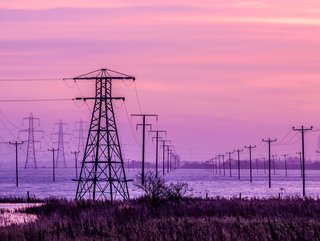UK receives £2.7bn upfront funding to boost grid capacity

Ofgem is to pump £20.9bn into upgrading the UK's electricity grid capacity, including £2.7bn of upfront funding.
The commitment was made as part of its landmark five-year vision to transform local energy grids to support the transition to a cleaner, affordable, home-grown low-carbon energy system, as part of its draft plans for the next electricity distribution price control (known as RIIO-ED2).
Distribution Network Operators (DNOs) have an important role to play in this process as they will need to build the regional branches of the smarter, greener, more flexible grids and ensure the speedy connection of the growing low carbon technologies required to hit government net zero targets.
Consumers will not see any additional costs as result of this investment as efficiency savings and reduced investor returns deliver the cash needed. Over the next five years, Ofgem claims consumers will see:
- A more secure and reliable electricity network less at risk of power cuts
- A grid that allows for new innovations to give more control to consumers through better data and more regularly updated prices for peak and off-peak demand creating efficiencies and saving money
- Support and guidance for vulnerable and low-income households ensuring no one misses out on the benefits of a net zero energy system
This transition, supported by transformed energy grids, will pave the way out of relying on expensive and unreliable fossil fuel imports that leave the UK’s homes and businesses at the mercy of volatile global gas prices and the kind of geopolitical threats we’ve seen this year, according to a statement.
As the economics of energy change, greener, home-grown energy has become the cheaper and more secure option. And new innovations mean consumers will be given more control to save money through access to better data and more regularly updated prices for peak and off-peak demand.
New smart gadgets could draw energy from the grid at cheaper rates when demand is low or it’s sunny and windy, balancing out power use, and saving consumers money.
As highlighted in Ofgem’s recent Storm Arwen report, the DNOs will also be expected to boost levels of reliability and system resilience to avoid outages during extreme weather events. These proposals ensure the networks are funded to deliver these improvements and make sure customers across the country receive the high standard of service that they expect.
Ofgem’s five-year price controls set the framework and the revenue that each of Britain's 14 Distribution Network Operators (DNOs) can earn from charges on consumers’ energy bills.
The average customer currently pays around £100 per year to meet the costs of operating, maintaining and reinforcing these local grids which are essential to the supply of electricity. Ofgem is ensuring consumers get value for money and costs are kept to a minimum while allowing funding for the improvements needed.
Jonathan Brearley, chief executive of Ofgem, said Ofgem’s job is to ensure energy networks have achievable and affordable plans that will attract the investment needed for a more resilient energy network and achieve the government’s net zero ambition at the least cost to the consumer.
“These are challenging times, and this is the path out of relying on expensive and polluting imported fossil fuels and moving to a home-grown energy system, that exploits the best of modern technology to level out demand and reduce costs for consumers," he said.
“We’re determined to get the best possible deal for consumers and the proposals we’ve published today will mean that substantial additional investment can be made to deliver net zero without placing any further pressure on bills.
“We’re confident that the five-year vision we’ve outlined will help build the world class energy infrastructure needed to connect consumers to reliable, cleaner energy at an affordable price.”
Digitalisation of the grids "is a key trend"
Simon Ede, Vice President in Charles River Associates’ energy practice, said RIIO-ED2 marks a tougher than hoped for settlement for distribution companies as Ofgem seeks to balance the need for large new investments with a heightened sensitivity on customer bills and complaints of excess profits in the past.
"Beyond the headlines, however, RIIO-ED2 continues to mark the focus of the regulator Ofgem on improving the distribution grids which are a vital component in the energy system given the move to a more decentralised, renewable and smart energy world," he said.
"Whilst the draft sum is still below what the 14 DNOs asked for, it is a recognition of the investments required. Having read the draft submissions form several of the DNOs, it’s clear that digitalisation of the grids is a key trend to better use the assets currently in use.
"This means software in tandem with smart devices will become more important down to secondary substations and beyond to the customer."
He said the £2.7bn of upfront funding is a clear sign that grid resilience is a key priority in the short term and capacity additions required for the EV uptake and general electrification.
"Heat Pump rollouts require both funding, planning and last but not least, a significant increase in skilled labour when it comes to installation and maintenance."






